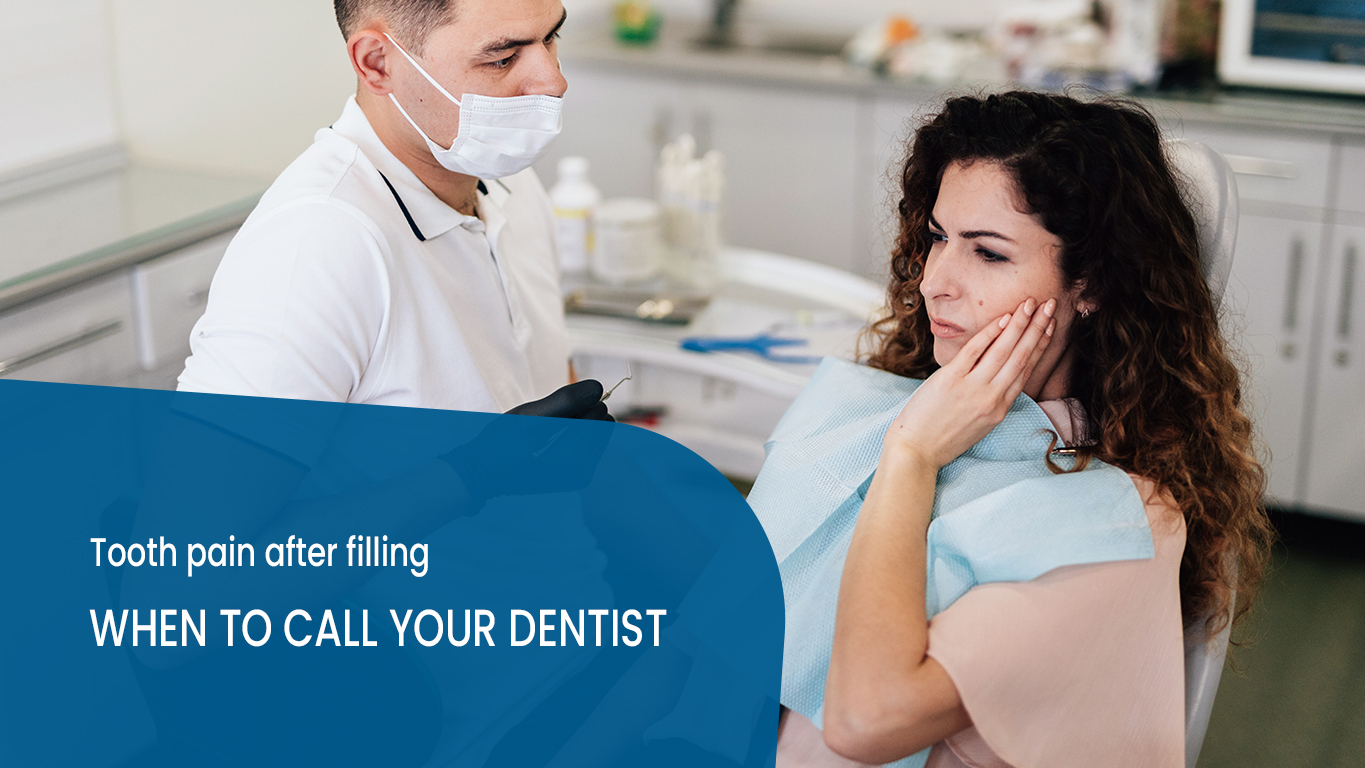Tooth Pain After Filling: When to Call Your Dentist

If you’re one of the many people suffering from cavities, a dental filling procedure may be your option. The process involves cleaning away tooth decay and sealing the cavity holes with resin to prevent it from spreading. Fillings are long-lasting and generally safe. However, as much as they are safe, they can leave you with short-term tooth pain after the treatment.
If you feel some discomfort after a filling, read the rest of this article below. It will help you understand if your symptoms are normal or not.
Is tooth pain after filling normally?
Tooth pain after receiving a dental filling is not unusual, and it is a temporary discomfort that should go away on its own. The temporary pain can also be triggered by certain activities such as clenching the teeth, brushing, or flossing. It can also be triggered by other factors, which include:
- Taking hot or cold foods and beverages
- Breathing in cold air
- Taking foods or drinks that are high in sugar
- Taking acidic drinks such as coffee and juice
When to contact your dentist
It’s normal for teeth to have some mild pain for a few days following a dental filling. Therefore, a visit to the dentist might not be necessary. However, visit the dentist if:
- The pain is too much and unbearable
- The pain hinders you from eating or comfortably moving your mouth
- You are experiencing other symptoms, including fever, rashes, or redness
The symptoms above indicate that you might have another underlying condition that requires treatment.
Causes of severe post-filling tooth pain
Here are some of the possible reasons you might have abnormal tooth pain after a dental filling:
• Inflamed or Irritated Nerve
The tooth-filling procedure is invasive. It typically requires an injection to numb the area around the tooth, drilling out the decay with a dental drill, and finally filling the resulting hole. With this, there’s a chance that one can develop inflammation around the nerve inside of the tooth. In most cases, this happens in deep fillings where the dentist has to drill deep close to the nerve end. However, the pain or discomfort should ease in a few days.
• Change or Misalignment in Bite
It’s normal to experience a little sensitivity when biting down after the dental filling procedure, but the bite will usually correct itself in a few weeks. However, you might experience more pain if your filling sticks out. This can cause difficulties when eating or closing your mouth.
• Pulpitis
This is the inflammation of the pulp. Pulpitis is the connective tissue that forms the center of the teeth. Pulpitis results from multiple invasive dental restorations, advanced cavities or trauma. There are two different types of pulpitis which include reversible and irreversible. Reversible pulpitis is where the inflammation experienced in the pulp is mild and can go away on its own or be treated with a simple filling. Irreversible pulpitis is where the nerve is severely damaged and cannot heal on its own. It will require a root canal treatment or tooth extraction.
• Allergic Reaction
The tooth pain may also be caused by an allergic reaction from the dental material the dentist used to fill the cavity. You may experience some tooth sensitivity, itching, or rashes.
Your dental health is our priority
At Springvale Dental Clinic, our team of friendly dental professionals is always ready to answer any questions you might have regarding your oral health or treatment. We’re always available to discuss your concerns and ensure you’re satisfied with every visit.
If you have questions but aren’t ready to schedule a consultation yet, feel free to reach out to us, and we will gladly answer them.



